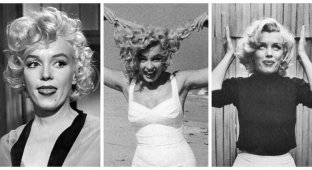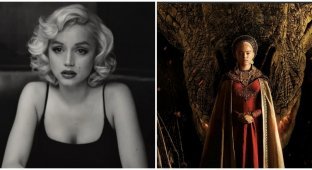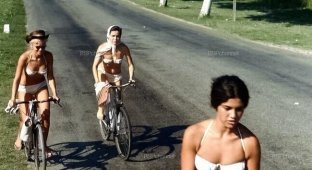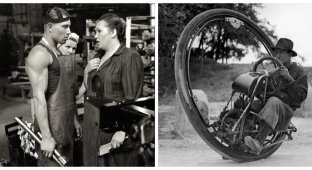Filming for the film “Some Like It Hot” was in full swing, and the ending of the film was still uncertain. Nobody knew what stroke to finish such a sparkling comedy.
They wanted to invite Audrey Hepburn or Elizabeth Taylor to play the role of Darling, but they did not suit the producers due to inconsistency with the image or lack of vocal abilities. 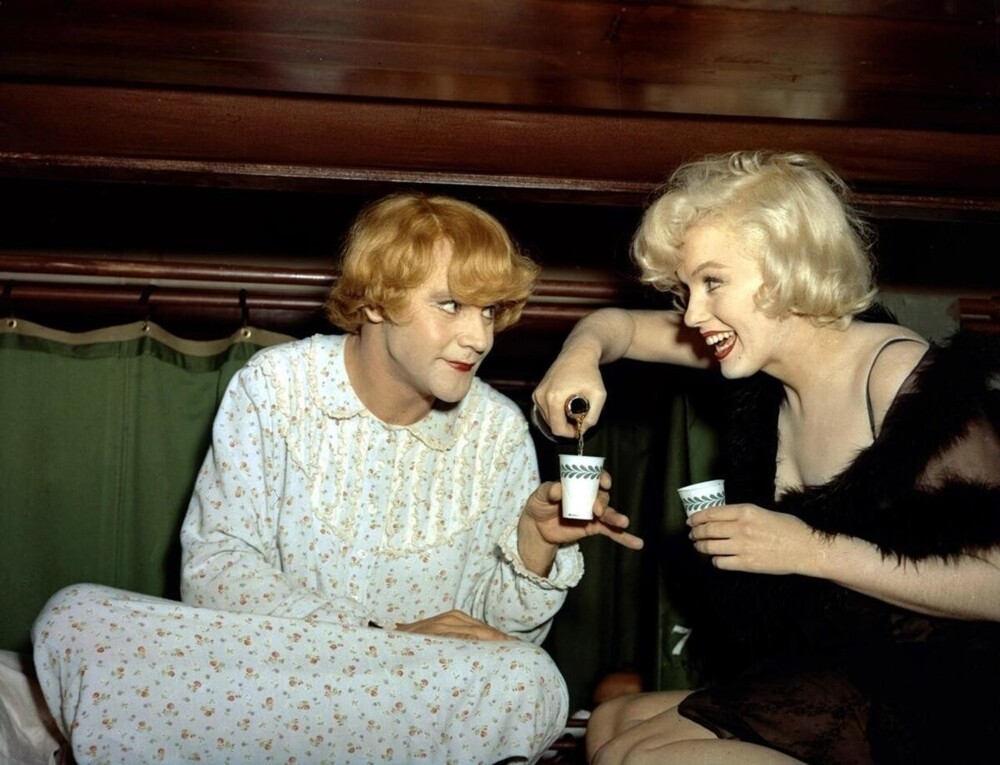
Then Marilyn Monroe was called to play the role of the main character. She thought for a long time and complained that again she was given the role of a dumb-headed blonde who could not distinguish a man from a woman.
Monroe's husband saved the situation. Arthur Miller, having read the script, appreciated the quality of the text and convinced Marilyn that everything was in order: after all, the other characters also could not identify the men in disguise. The actress finally agreed. 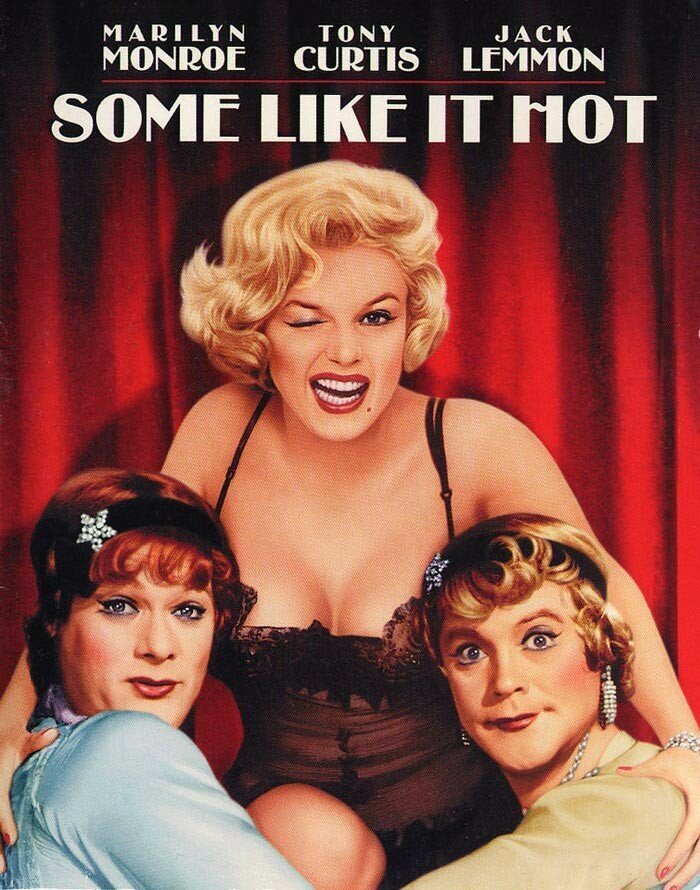
"Some like it hot"
Monroe was late for filming, mixed up her lines and made such a scandal that her partner, Tony Curtis, was ready to kill Marilyn. Director Billy Wilder said of making the film with Monroe: "I discussed it with my doctor and psychiatrist, and they told me I was too old and too rich to go through it again."
But the duet between Tony Curtis and Jack Lemmon was incomparable. The actors were friends until the end of their days, despite the fact that Tony was once a member of a gang of juvenile delinquents operating on the East Side, a hooligan and a daredevil, and Jack was from a prosperous family and a Harvard graduate.
In the Soviet Union, the film “Some Like It Hot” was released on August 22, 1966 under the title “Some Like It Hot” with some cuts (for example, more than half of the kisses of Darling and Joe were cut out, as well as scenes and lines that may not be clear to Soviet viewers ). 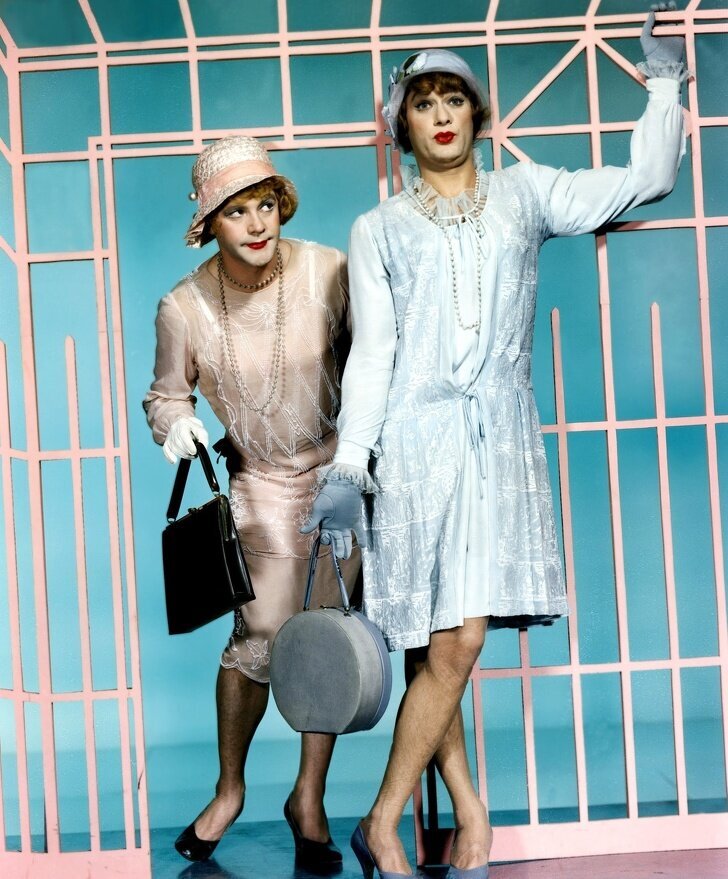
"Some like it hot"
The catchphrase: “Everyone has their flaws/Well, nobody’s perfect,” uttered by the eccentric millionaire Osgood Fielding III, brilliantly played by Joe Brown, was inserted at the end of the film completely by accident. Moreover, director Billy Wilder did not like this ending at all.
In the first version, the picture was supposed to end with the embrace of Darling and Joe. The option of the heroes fleeing to Latin America was also considered. However, a week before the end of filming, after going through all sorts of options all night, the director and screenwriter finally settled on the famous line and made the right decision - the phrase from Daphne’s enchanting “groom” became one of the most favorite quotes in cinema. 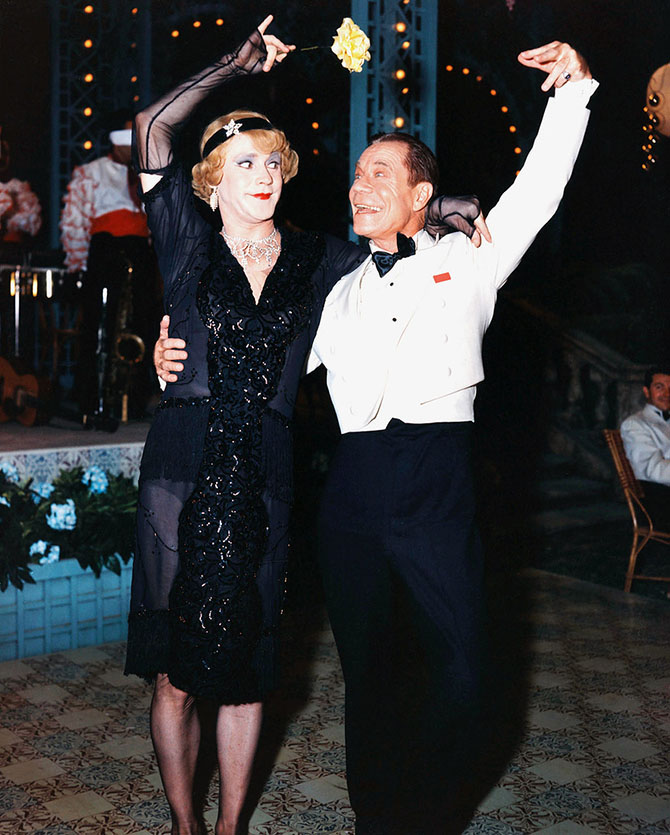
Jack Lemmon and Joe Brown "Some Like It Hot"
Our viewer also remembered and fell in love with Joe Brown for an episode, for a moment of joy, for a good mood, for small roles in the films “Around the World in 80 Days” (1956) and “It’s a Mad, Mad, Mad, Mad World” (1963).
Joe Brown was born on July 28, 1891 in Holgate, Ohio into a large family of seven children. A plastic and flexible boy with expressive facial expressions, he performed in the circus from the age of ten, and in his youth became a professional baseball player. It was said that Joe could become a successful major league baseball player. 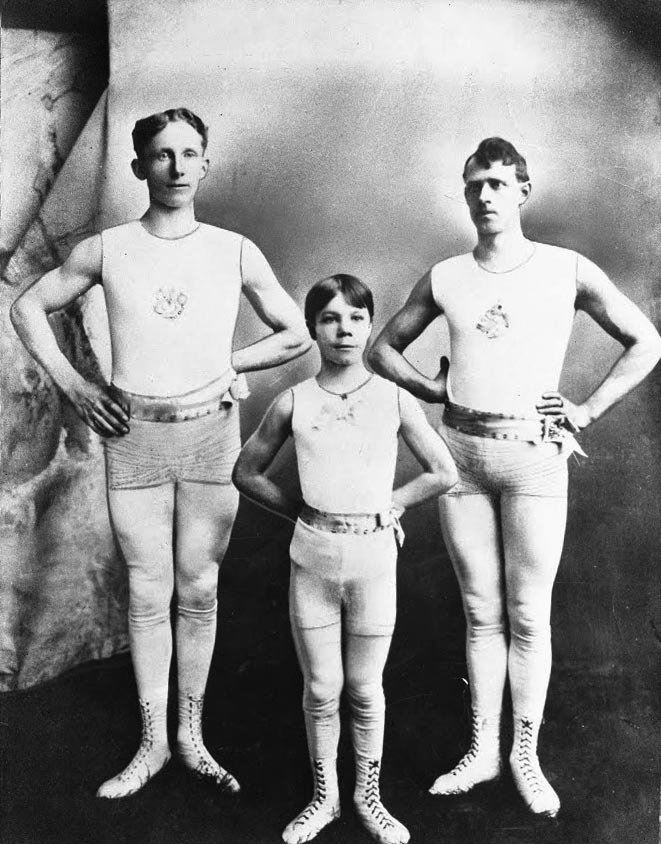
Young Joe Brown in the center
However, a sports career did not attract him. He liked to make the audience laugh. Joe went to Broadway in the 1920s, where he performed as a stand-up comedian. By the way, Brown’s repertoire never included popular “dirty jokes.” He always treated the audience with respect and made it a rule: “If my mother were in the audience, I would be able to deliver this monologue...”
Soon Joe got a role in the musical comedy Jim Jam Jams. “The Man with the Rubber Face” is what Joe Brown was nicknamed for his wide smile and unique appearance.
He was surrounded by a lot of pretty girls from show business, but the aspiring actor met a girl who had nothing to do with the world of art. Nineteen-year-old Katherine Frances McGraw was an outgoing, cheerful girl and an excellent cook. They met in 1914 and almost immediately Joe proposed to her.
Miss Macrow, born into an Irish Catholic family, really wanted to get married, and it was not a whim, but a necessity. The groom had less than a hundred dollars in his pocket, with which they needed to somehow start their family life, and so the newlyweds made do with a simple civil ceremonyee at City Hall.
The newly-made spouses were returning to the metro. Joe hugged Catherine and promised:
- Someday we will have a real wedding - with a white dress, organ music, flowers and a celebration for friends and family. In the meantime, I can promise that you will be happy with me.
His wife looked at him with a grateful smile:
- I believe you.
Katherine really wanted to always have a person next to her who could care for, protect, make her laugh when she was sad, and calm her down when she was scared...
Joe's film debut took place in 1928. An actor of fantastic charm, a very kind and decent person, a caring husband and an exemplary father, he played many minor roles. Brown became one of the most successful comedians of the 1930s and 1940s.
He was a baseball fan and took great pleasure in commentating on sports matches, always fittingly inserting one or another historical fact, or even a funny anecdote.
In 1939, Brown testified before the House Immigration Committee in support of a bill that would allow 20,000 German-Jewish child refugees into the United States. 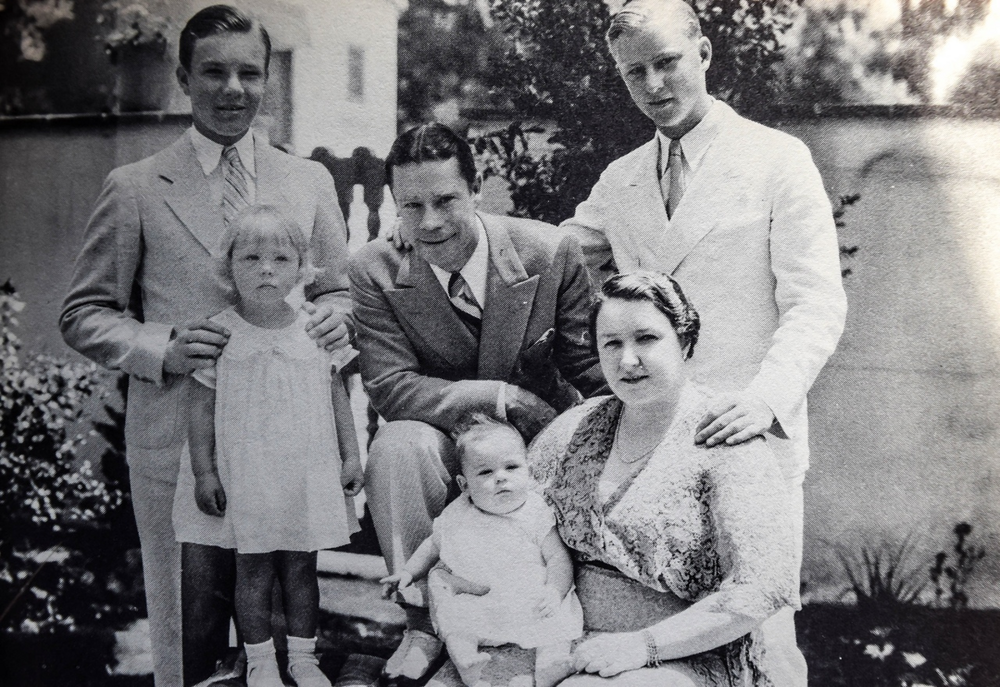
Joe and Catherine with children
Brown fulfilled his promise to his wife only a quarter of a century later, when they already had four children - two natural sons, Don and Joe, and two adopted ones: orphan girls Katherine and Marie, who were adopted in infancy.
The wedding took place in Hollywood in 1940, on the day of the Brown couple's silver wedding, in the Church of St. Thomas the Apostle, surrounded by their closest loved ones. Catherine held a bouquet of white orchids in her hands, and her elegant daughters held small wedding bouquets. The youngest son, Joe, was his father's best man, and the eldest, Don, was his mother's best man. 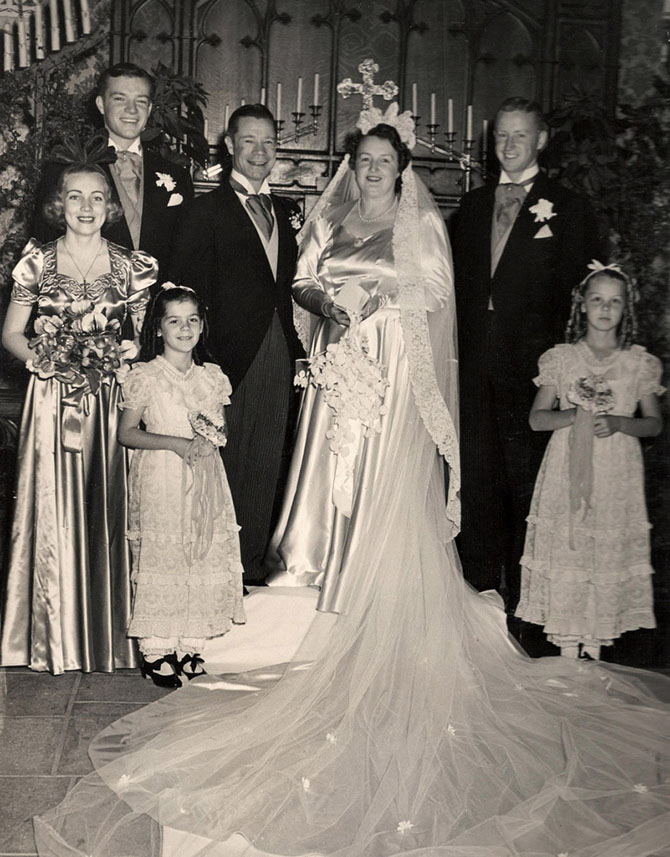
Joe and Catherine's wedding
It was probably the happiest day of their lives, which they remembered for a long time. Soon the Second World War began, and the sons went to fight as part of the US Army Air Corps.
Katherine volunteered for the Red Cross, and Joe, now fifty years old, did his part, organizing shows at his own expense and traveling two hundred thousand front-line miles as part of performing crews.
He gave concerts in all weather conditions in open areas. Joe often performed in hospitals, sometimes for a wounded soldier. For his moral service, Brown became one of only two civilians to receive the Bronze Star combat award during World War II.
On October 8, 1942, Joe Brown learned that his eldest son, Don, had died. Captain Don Brown's Douglas A-20 Havoc crashed ten miles from Palm Springs.
“I fell into a dark abyss that I couldn’t get out of,” Joe recalled. Then suddenly the realization came: “When you have lost your own boy, all others become your sons.” Joe received bags of letters from soldiers thanking him for his performances and moral support.
Brown was also always a favorite of the children's audience and the children adored him. Thousands of letters came from them, and Joe answered everyone and never refused an autograph. 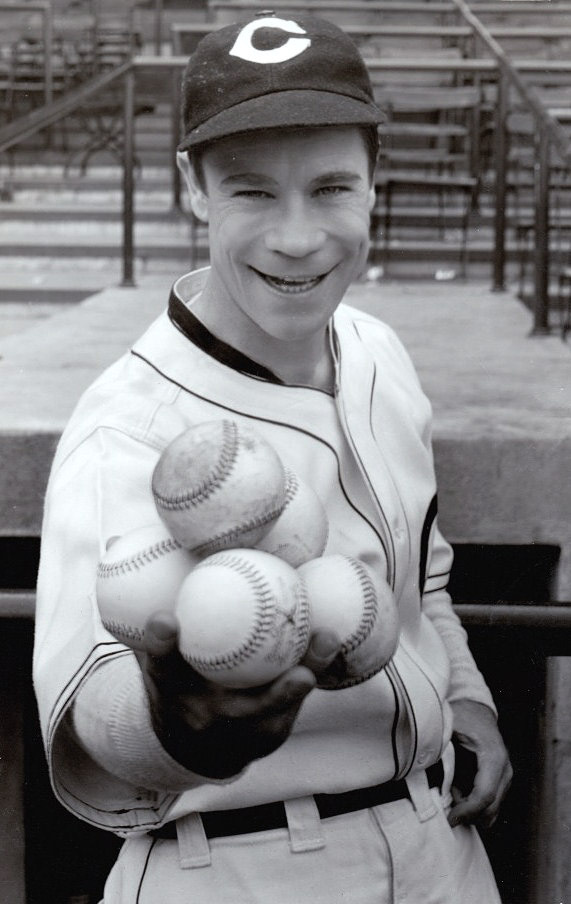
Joe lived with Katherine for almost sixty years, until his death. Joe Brown died at his California home three weeks before his 82nd birthday from heart disease.
Add your comment
You might be interested in:












